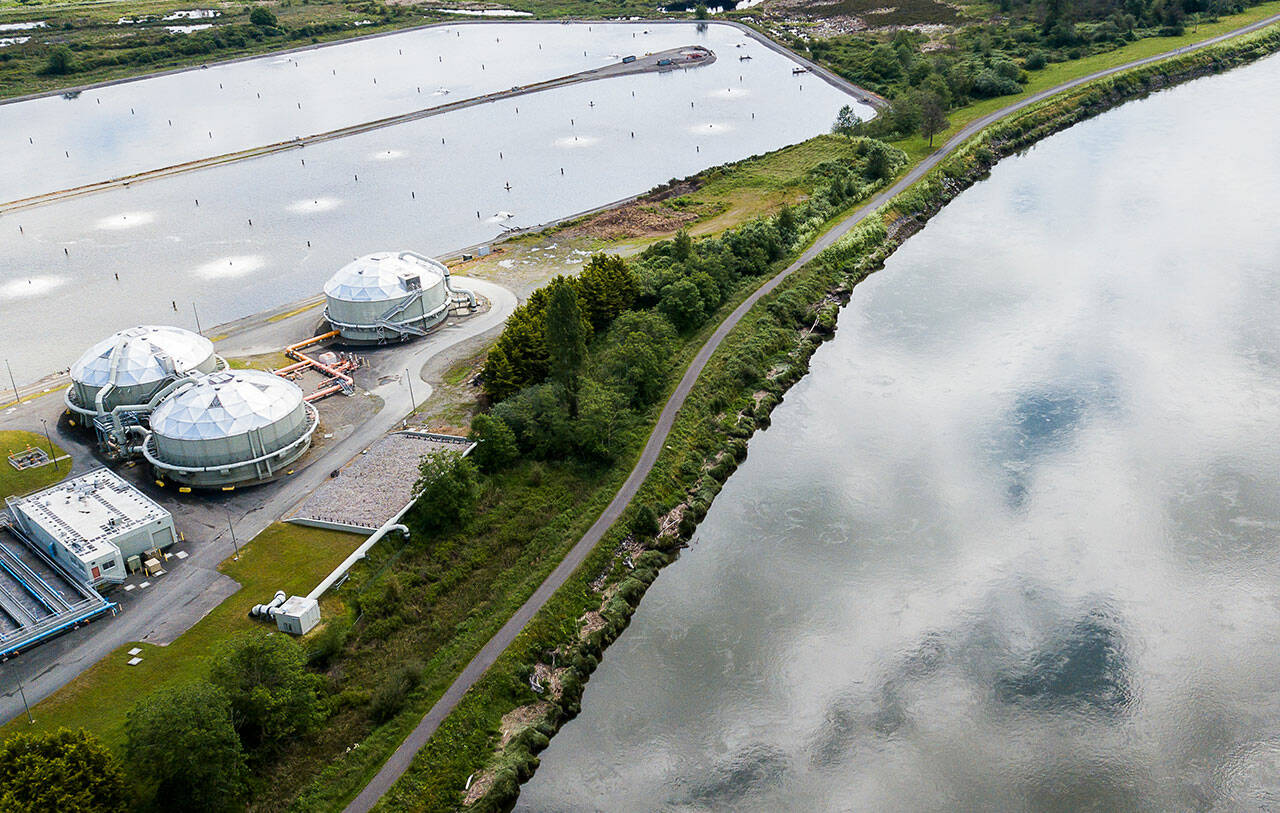EVERETT — The state Department of Ecology fined Everett $13,000 for almost 10 million gallons of wastewater discharge that wasn’t completely treated in June.
Between June 4 and 5, the plant handled over 63 million gallons of mostly stormwater, as reported in The Daily Herald. Most of the treatment process happened normally, except for a 19-hour failure of the pump to inject sodium hypochlorite, which is similar to concentrated bleach and sanitizes the wastewater before it enters the Snohomish River.
That sent about 9.9 million gallons that wasn’t fully treated into the river.
The city’s wastewater permit requires Everett to immediately notify disinfection failures to the ecology department, state Department of Health’s Shellfish Program and the Snohomish Health District. But when the pump failed, the city did not report the issue until the morning of June 7 and did not collect a required sample to determine fecal coliform bacteria levels, according to Ecology.
“The City of Everett could have prevented this serious incident by ensuring their systems were functioning properly,” Rachel McCrea, Water Quality section manager for Ecology’s Northwest Region, said in a news release. “In addition, we need timely reporting and sampling when something does go wrong, so we have an accurate picture of water quality, and health agencies know to warn the public to avoid contact with the water. These are longstanding requirements that help to protect human and environmental health.”
The June incident was similar to an earlier issue. Everett was installing a new sensor to detect that kind of problem, but the backup systems did not work at the time, according to Ecology.
Everett has since repaired equipment and installed a new backup sensor system, city spokesperson Kathleen Baxter wrote in an email. The city implemented more inspection and testing of the sodium hypochlorite feed pump and trained staff on proper notification procedure, McCrea said.
The city has installed a new backup sensor system, standardized additional inspection and testing of the hypochlorite feed system pump, and trained their staff on the correct notification procedure and timeline.
“We believe these are important steps to reduce the likelihood of similar incidents,” McCrea said.
Everett has 30 days to pay the fine or appeal it to the state Pollution Control Hearings Board. Money from those fines is put into the state’s Coastal Protection Fund, which offers grants for water quality restoration projects. An example is work on the Snohomish River estuary by the Tulalip Tribes in 2012.
City staff were reviewing the state’s enforcement and had not decided to appeal or pay the fine as of Thursday afternoon. Any payment would come from the city’s utility fund.
Ben Watanabe: 425-339-3037; bwatanabe@heraldnet.com; Twitter: @benwatanabe.
Talk to us
> Give us your news tips.
> Send us a letter to the editor.
> More Herald contact information.

























